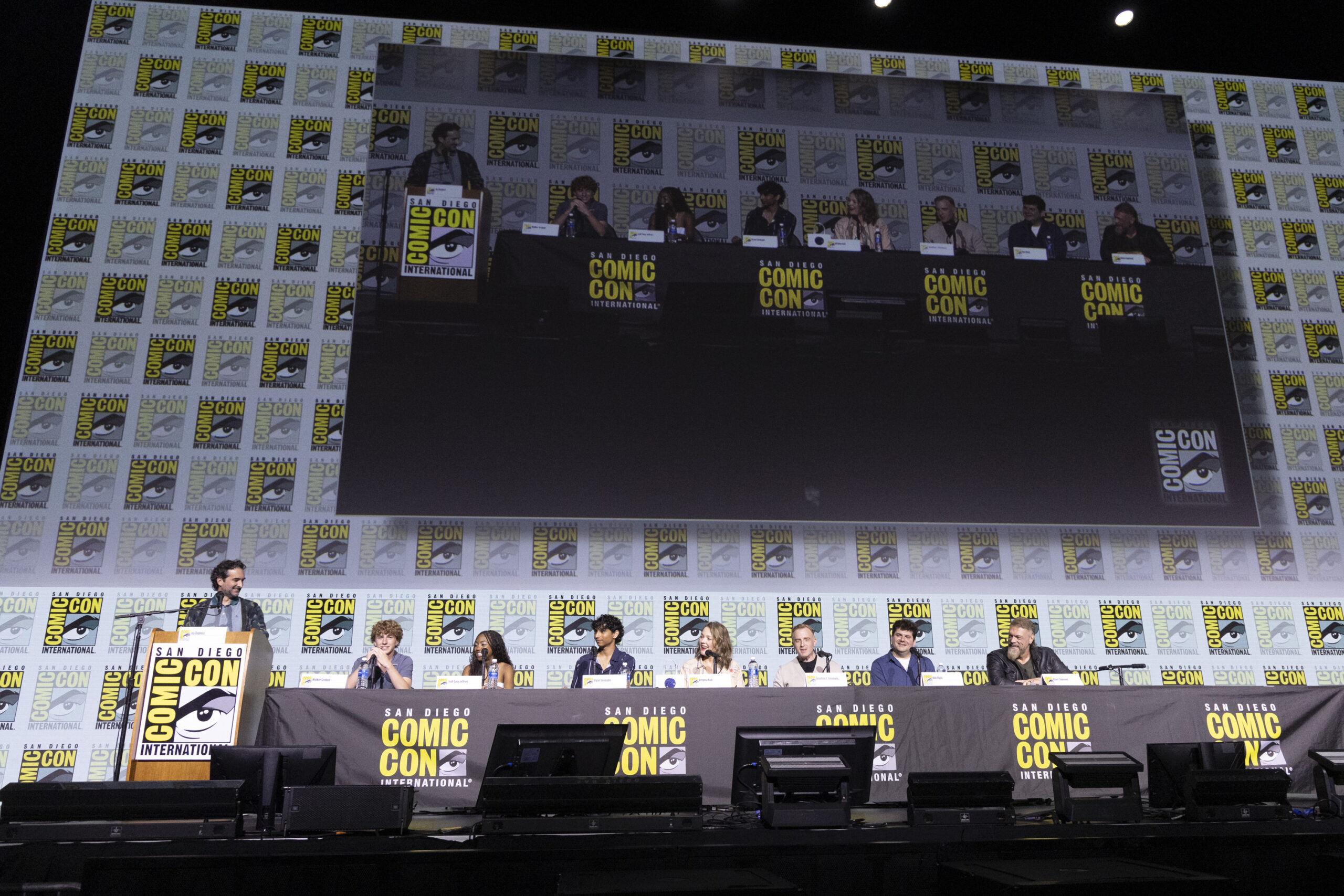![]()
Let’s face it. We live in a very interesting time of race and gender politics. Every year, we see great strides being made in race and gender equality. With the release of Wonder Woman, a lot of focus is understandably being shifted towards the gender side of things.
Of course, with a character like Wonder Woman, there’s a real fine line you have to walk. If the character isn’t strong enough, you run the risk of people calling her weak, and if you make her too strong, you run the risk of making her a dude in a skirt. However, there’s a reason why Hollywood has such a hard time portraying women in film, and that’s because, more often than not, they’re being written and directed by men.
Speaking with THR, Gal Gadot discussed the complex gender politics in making her feel like a fully realized person — one that’s relatable.
“That’s the challenge — how to tell a story of a woman and make it universal. We are all used to having male protagonists in movies [directed by men]. But the way [director] Patty [Jenkins] has captured the Wonder Woman character, she is very relatable to everyone. Boy, girl, man, woman — everyone can relate to her.”
And with someone as powerful as Wonder Woman that’s no easy feat.
“Credit Patty for not turning [Wonder Woman] into a ballbuster. Wonder Woman can be very charming and warm and have so much compassion and love for the world. She can be soft and naive. At the same time, she just happens to be this demigoddess who can beat the shit out of you and can be a super badass and smart and confident. Ultimately, she’s very relatable.”
We can attest to that fact. The film did a fantastic job of balancing the different aspects of her character. She’s strong, no doubt about that, but she’s also kind and naive. This all culminates in an emotional character arc that’s on par with the very best of superhero movies.
Will you be seeing Wonder Woman? Let us know your thoughts down below!
Don’t forget to share this post on your Facebook wall and with your Twitter followers! Just hit the buttons on the top of this page.
SOURCES: THR

 FOR FANBOYS, BY FANBOYS
Have you checked out LRM Online’s official podcasts and videos on The Genreverse Podcast Network? Available on YouTube and all your favorite podcast apps, This multimedia empire includes The Daily CoG, Breaking Geek Radio: The Podcast, GeekScholars Movie News, Anime-Versal Review Podcast, and our Star Wars dedicated podcast The Cantina. Check it out by listening on all your favorite podcast apps, or watching on YouTube!
Subscribe on: Apple Podcasts | Spotify | SoundCloud | Stitcher | Google Play
FOR FANBOYS, BY FANBOYS
Have you checked out LRM Online’s official podcasts and videos on The Genreverse Podcast Network? Available on YouTube and all your favorite podcast apps, This multimedia empire includes The Daily CoG, Breaking Geek Radio: The Podcast, GeekScholars Movie News, Anime-Versal Review Podcast, and our Star Wars dedicated podcast The Cantina. Check it out by listening on all your favorite podcast apps, or watching on YouTube!
Subscribe on: Apple Podcasts | Spotify | SoundCloud | Stitcher | Google Play



